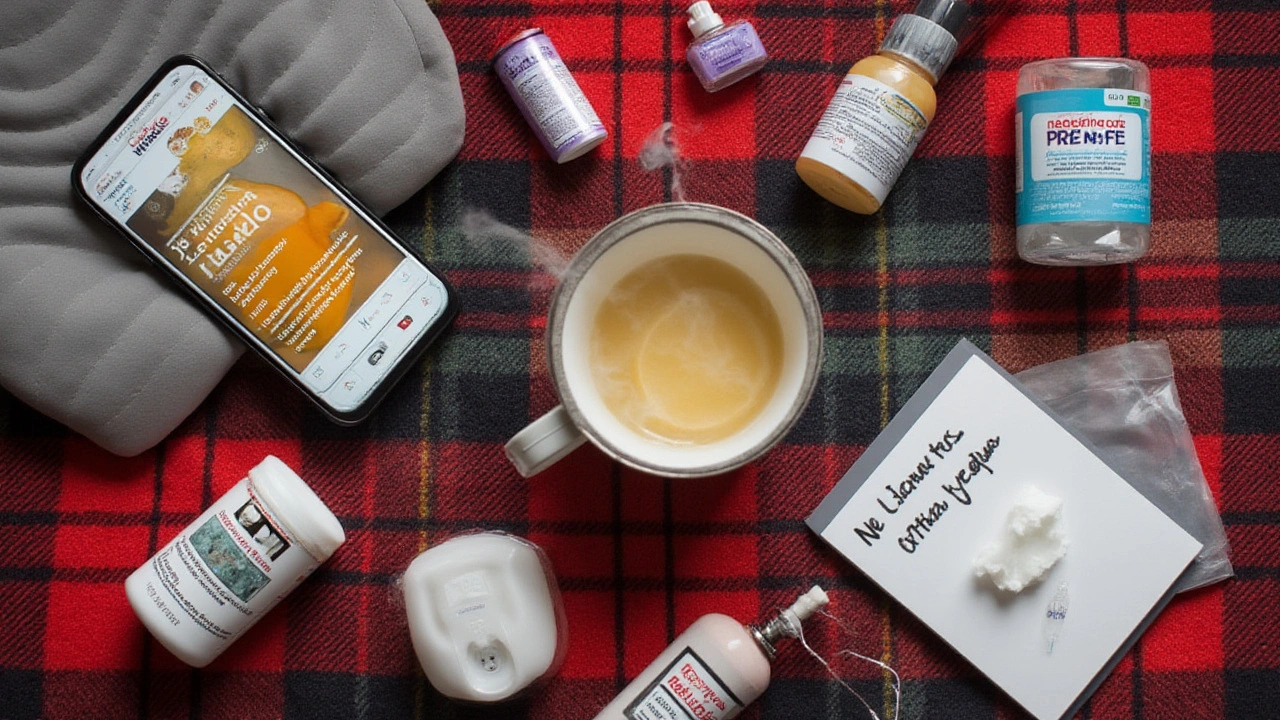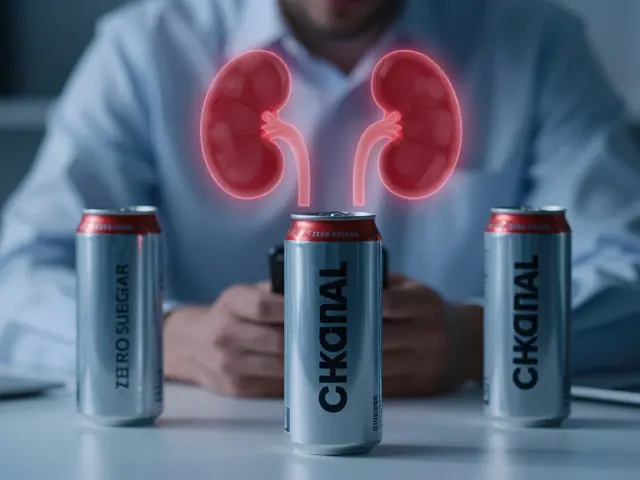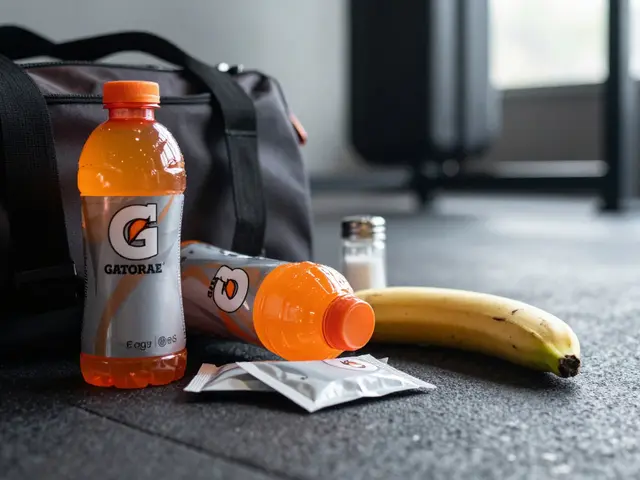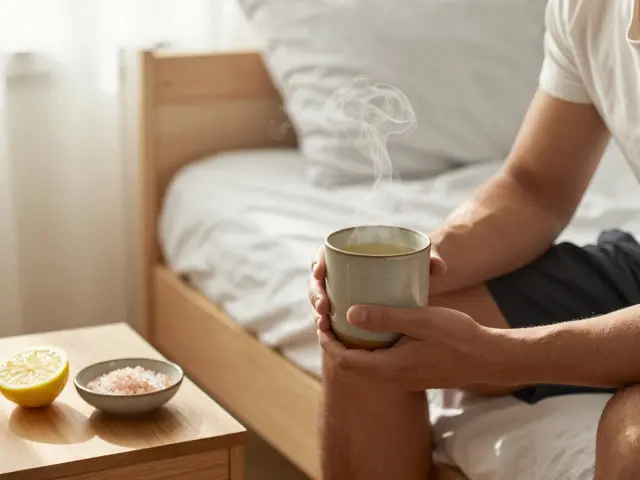Cold Season Pharmaceutical Lifehacks: Survive and Thrive with Smart Medicine Choices

Chills, sniffles, aching muscles—like a bad rerun, cold season always comes back just when you thought you’d made it through. Pharmaceutical shelves groan with bottles and boxes promising instant relief, but somehow you still end up asking, “What actually works?” If the thought of choosing between ten different cough syrups makes your brain hurt more than your head cold, it’s time to hack the system. Over years and dozens of cold seasons, medicine cabinets everywhere have quietly become labs for at-home experiments, little archives of what helps, what’s a waste, and what can genuinely save your sanity. So, grab a mug of something warm, and let’s talk real-life, science-driven survival strategies for a less miserable, more manageable cold season.
The Science Behind Pharmacy Aisle Staples: What’s Worth It?
The sheer number of products packed along pharmacy aisles can make anyone’s eyes cross. Everyone claims their decongestant, syrup, or lozenge is the magic bullet. But are you buying hope or something that actually helps?
Let’s start with decongestants. Pseudoephedrine and phenylephrine are everywhere, but here’s a shocker—recent FDA review and a 2023 University of Florida study both show oral phenylephrine is basically as useful as a sugar pill for a stuffed nose. That’s right, those little orange tablets probably aren’t doing much of anything. If stuffy sinuses are ruining sleep, look for pseudoephedrine behind the pharmacy counter—the one you have to show ID to get. It has real science behind it.
Meanwhile, old-school antihistamines like diphenhydramine dry you out, but leave you groggy as a zombie. The newer ones, like loratadine or cetirizine, won’t knock you out, but don’t do much for colds—those are actually for allergies, not viral mucus monsters.
Cough syrups are another pharmacy minefield. Dextromethorphan, the most common cough suppressant, isn’t actually all that helpful for run-of-the-mill colds. A 2022 meta-analysis from The Cochrane Library found only a minor benefit, and that mostly for serious, dry coughs. Honey, on the other hand, might work better for nighttime cough (yes, really). Try a spoonful before bed—just not for kids under one year old.
Talk about sneaky details—did you know menthol rubs don’t unclog your airways? They just make your brain think you can breathe easier. There’s nothing wrong with this trick, though; placebo power is real, and anything that gets you back to sleep at 3 a.m. is worth something.
Throat lozenges can be soothing, but go for ones with actual ingredients like benzocaine (temporary numbing) or menthol (cooling effect), rather than just sugar. And stay hydrated. Dry air and dehydration thicken mucus, making every tickle and cough worse. Aim for water, herbal teas, or electrolyte drinks if you’re losing fluids with a fever or sweating out the worst of it.
For a quick look at what you’ll find on shelves and what makes sense to keep on hand, see the breakdown here:
| Product Type | Main Ingredient | Best For | Science-Backed? |
|---|---|---|---|
| Decongestant | Pseudoephedrine | Stuffy nose, sinus pain | Yes (works for most) |
| Decongestant | Phenylephrine | Stuffy nose | No (little effect) |
| Antihistamine | Diphenhydramine | Runny nose, sleep | Yes, for symptoms—causes drowsiness |
| Cough Suppressant | Dextromethorphan | Dry, nagging cough | Only mild benefit |
| Nasal Spray | Saline | Dry/out-of-whack nasal passages | Yes (safe, supportive) |
| Lozenge | Benzocaine/Menthol | Sore throat pain | Yes (temporary numb/soothe) |
| Honey | Raw honey | Night cough (adults & older kids) | Yes (shown to help sleep) |
Don’t just reach for the prettiest packaging. Ask yourself, “What symptom am I trying to fix?” Target that with medicines that actually have evidence behind them. And when in doubt, your pharmacist is an underrated hero—run your symptoms and other meds by them for plain-language advice.

Pro Hacks for Shopping, Dosing, and Using Medications Safely
Cold medicine isn’t just about what’s effective—it’s also about how (and when) you take it, and a little savvy shopping. Forget cramming your medicine cabinet like a squirrel in autumn. Smarter is safer (and less expensive).
First, combination products might sound handy (“nighttime cold and flu relief!”) but often cram in useless or even counterproductive ingredients. Example: that “multi-symptom” syrup might have acetaminophen (for fever), dextromethorphan (for cough), and phenylephrine (for congestion), but do you actually need all three? Don’t double up on medicines in separate products—liver toxicities from too much acetaminophen are a real thing, especially if you’re also popping painkillers for headaches.
Always check the active ingredients. The FDA has pushed more for clear “Drug Facts” labels—in bold and black and white—but lots of people still miss sneaky overlaps. Can’t remember what you took at midnight? Keep a notepad or use your phone’s notes to log doses, especially if you’re brain-fogged from fever.
Not all “natural” shortcuts work, but a few do earn their space. Saline nasal sprays or rinses don’t medicate, but they genuinely help by flushing out thick mucus, allergens, and irritants. Humidifiers can also make a big difference in dry, heated apartments and houses (just clean them regularly to avoid mold—moldy air is not your friend).
If fever and body aches are bugging you, stick to acetaminophen or ibuprofen. Both work, but acetaminophen is easier on the stomach, and ibuprofen is better for inflammation—think big, sore throats or swollen sinuses. Avoid aspirin if you’re under 18, thanks to rare but scary Reye’s syndrome risk.
Speaking of “miracle cures,” vitamin C and zinc have been hyped forever. Large review studies in 2021 (check the European Journal of Clinical Nutrition for a deep-dive) show vitamin C might slightly shorten your cold, but only if you were already taking it regularly before you got sick. Same for zinc lozenges—they could help with duration if taken in the first 24 hours, but watch out: too much zinc is rough on your gut and can cause nausea.
Certain cold remedies can clash with medical conditions or other meds. If you have high blood pressure, for instance, pseudoephedrine is usually off-limits. People with thyroid problems, glaucoma, or prostate disease should be careful with lots of over-the-counter stuff. Double check with your doc or pharmacist if you have any medical questions, and don’t play “DIY pharmacologist” if you’re pregnant or breastfeeding.
Younger children (under age six) should skip most cough and cold meds altogether. Instead, focus on fluids, honey (if over one year old), and humidifiers. For older kids and adults, always follow dosing instructions. Doubling up is not better—it just risks side effects and won’t get you better faster.
- Keep medicines somewhere cool and dry. Bathroom cabinets get steamy—choose a closet shelf.
- Check expiration dates before each season. Out-of-date medicine isn’t just weaker, it can be unsafe.
- Don’t drive or operate heavy stuff if your medicine says “may cause drowsiness” (learned this the hard way!)
- Try to take pills, syrups, or lozenges with food or after eating unless directed otherwise to avoid stomach upset.
- If you’re sensitive to dyes or artificial sweeteners, scan for these on the ingredient list—many syrups still use bright dyes or sucralose.
- Feel wiped out but have to show up for work or a test? Ask about “non-drowsy” formulas, but don’t experiment the morning of a big event—everyone reacts differently the first time.
Buying generic versions of well-known brands like NyQuil, DayQuil, or Sudafed can save serious cash. Pharmacies must meet the same ingredient standards for generics, so unless you have a favorite flavor or lozenge texture, you’re paying for marketing, not extra relief.
What about prescription options? Most colds are viral, and antibiotics not only don’t help, but overuse is creating resistant bacteria. Save those for when your doctor actually diagnoses strep or bacterial sinus infection.

Beyond Pills and Potions: Building Your Cold Season Toolkit
Sometimes it feels like nothing you buy is making you feel human again. This is where a broader toolkit comes in—think beyond the pharmaceutical lifehacks to build habits and home hacks that actually speed up recovery and, hey, maybe prevent the next round.
Everyone says “rest,” but let’s be real—real rest means putting the screens down, saying no to email, and letting your body work its magic. Sleep kicks the immune system into high gear. If you’re getting trouble sleeping, that’s where those old-fashioned antihistamines (the drowsy kind—like diphenhydramine) at bedtime can have a strategic role. Just don’t use them for more than a couple nights running or you’ll mess with your natural sleep cycle.
Run a cool-mist humidifier if your place is desert-dry. (Ironic, but humid air actually helps thin mucus.) If you don’t want to buy one, a hot shower works as a quick steam bath for stuffy sinuses.
Pro tip: Stack up a mini care station next to your favorite blanket or couch corner. Tissues, trash bag, lozenges, a refillable water bottle, lip balm, and soft snacks all in arm’s reach make a huge difference when you feel too miserable to get up. If you kinda enjoy the ritual, go wild with warm socks and silly mugs—it adds at least a little comfort when you’re feeling low.
Some gadgets actually help speed up healing time. For example, digital thermometers help spot a fever spike quick, so you know when to medicate and when to let your body sweat it out. Pulse oximeters aren’t just for grandma—if you have asthma or chronic respiratory issues, they give peace of mind you’re not dipping too low on oxygen during a nasty bug.
If you’re really hoping to dodge every virus floating around, handwashing is still the gold standard. Alcohol-based hand sanitizers above 60% are great on-the-go. Once a bug is already brewing, avoid sharing hand towels or drinking out of the same water bottle (no, ‘it’s just a cold’ isn’t a free pass!).
Nutrition also matters. You can’t “cure” a cold with oranges and chicken soup, but routine balanced meals, plenty of fluids, and a little extra protein help your immune system do its job. Go easy on caffeine and alcohol—they suck fluids from your system, just when your body needs them the most.
Don’t forget your mental game. If you’re stuck in bed, let things go at work or home as best you can. Stress makes symptoms feel worse and slows down recovery, according to a 2024 Cleveland Clinic study that linked higher anxiety to longer viral symptoms. Streamline your to-do list. Delegate. Give yourself permission to rest—that’s medicine, too.
- If you have pets, keep them close; animal cuddles lower stress and might even help lower blood pressure, according to the CDC.
- If you need to wear a mask, pick one that fits snugly and doesn’t chafe. This helps prevent spreading your cold to family or coworkers, and keeps your face humidified (bonus!).
- If you're caring for someone sick, wash hands with soap for 20 seconds after contact, clean surfaces with disinfecting wipes, and skip sharing pillows or electronics.
- Try a saltwater gargle for sore throats. Mix half a teaspoon of salt into a glass of warm water and swish—ancient, but it genuinely works to ease pain and swelling.
- Home remedies like chicken soup genuinely do help—it hydrates, offers electrolytes, and the warm steam soothes irritated sinuses.
If your symptoms drag out beyond 10 days, you get short of breath or chest pain, or you’re just not sure what’s going on, there’s no shame in calling your doctor. Sometimes what feels like a simple cold morphs into a sinus infection, bronchitis, or something else that does need extra medical help. Adulting means knowing when to phone a friend (or professional) for backup.
Cold season happens to everyone, but it doesn’t have to be misery on repeat. A little smart shopping, a couple of proven habits, and knowing what works for your body can make all the difference. So, next time you feel the first twinge of a scratchy throat, you’ll have the tricks (and receipts) to make cold season less of a hassle—and maybe even come out stronger on the other side.





